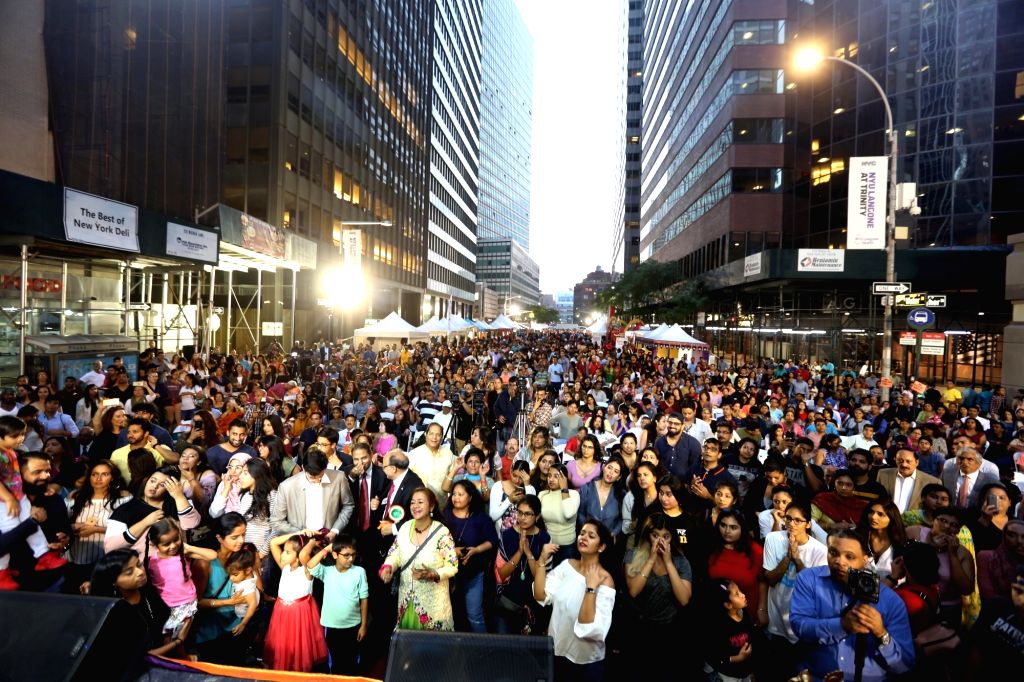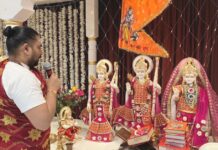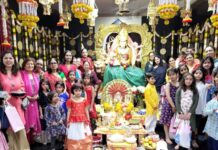WASHINGTON: Assertive Hinduism was the most visible US import from India in 2022, courtesy the Indian American community. An event to commemorate the 75th anniversary of Indian Independence at US Capitol, home to US democracy and Congress, was turned into a celebration of their Hindu faith by organisers and attendees as groups after groups lustily chanted “Jai Sri Ram”. It wasn’t the wine that was being served.
A bulldozer rolled along a parade organised by a separate bunch of Indian Americans in New Jersey, in an unmistakable nod to its emergence as a symbol of oppression of minorities in India. The backlash continues to this day, with a coalition of Muslims, African Americans and civil rights groups calling for the US authorities to investigate its organisers, which included the Overseas Friends of BJP.
This import from India was also seen in other countries with significant presence of the Indian diaspora in 2022. Indian-origin Britons chanting “Jai Shri Ram” marched through the streets of Leicester in the UK in September, which was noted with much alarm by British authorities and media. Some Hindu-Americans have been quietly promoting their faith and cultural accoutrements for decades.
Vishwa Hindu Parishad America, for instance, was founded in 1970 to, in the words of its website, “preserve, promote and practice those great universal and eternal values which were discovered and practiced by the Sages of Bharat”.
But this in-your-face Hindu assertion is new and has surprised and embarrassed more moderate sections of Hindus. “I was shocked by the naked display of this Hindu assertion at the US congress event,” said one of the people who attended, speaking on condition of anonymity to be able to express his views freely.
Attendees posed for pictures in groups chanting “Jai Shri Ram” as members of US congress arrived, spoke and left with aides. Slogans were also raised about India — “Bharat Mata Ki Jai”, which may have been appropriate given the occasion, the 75th anniversary of Indian independent.
US Congress, incidentally, was a favoured venue for many of these public display of assertive Hinduism. Another group of Indian Americans hosted two events at the Capitol in 2022 to register their desire to shirt the generic name of the community from Indian American, as the nearly 4 million Americans of Indian extraction have been called for decades, to Hindu American as some in the community have been advocating for long, but unsuccessfully until now.
One of the events was hosted by a group of prominent Indian Americans who said they were disappointed by the Indian government’s refusal to offer a robust criticism of Russia’s invasion of Ukraine and, they further argued, they did not want to take the backlash they suffered on behalf of the Indian government.
These events were also motivated by a desire to project Hindu Americans — and not Indian Americans — as a political force in US politics, which was cited as a reason by the organisers for hosting at the US Capitol, to deliver the message directly to US lawmakers.
The Indian diaspora in the US has been debating this name change for a while, and among community members who vote and support both the Democratic and the Republican parties. India-born immigrants continued to feel a strong link with their country of origin, but the second generation of Indian Americans feel less committed to this political part of their heritage — they feel they are American, born and raised in the US unlike their parents, uncles and aunties.
The name Hindu American for Hindus in the diaspora makes more sense. But this is not a debate that has been settled yet.







